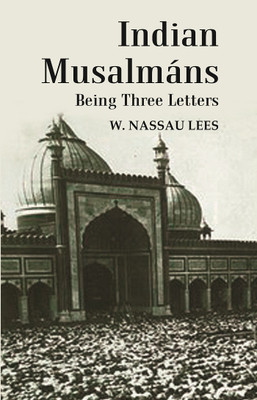Indian Musalm├Īns : Being Three Letters(Paperback, W. Nassau Lees)
Quick Overview
Product Price Comparison
About The Book : I wish I could close my letter with this brief testimonial to the worth of the excellent and humane Judge who has just fallen by the dagger of the assassin; but there is a political question of such very grave importance raised in the correspondence-under notice, regarding which, looking to the relationship in which I have stood to the educated Mohammadans of Bengal for the past twelve or four- teen years, I feel it my duty to them, as well as to the Government which I have the honour to serve, to do my best to aid the public in comet to a right conclusion. I allude to the charges of disloyalty to the Queen which this melancholy event has called forth from correspondents in your columns against Her MajestyŌĆÖs Indian Mohammadan subjectsŌĆöcharges made general rather by implication than by direct statements. These charges have been indignantly repelled, I am glad to observe, by ŌĆ£A MahomedanŌĆØ in his letter of the 27th ult., published in your issue of the day following. I not only firmly believe in the sincerity of the professions of loyalty and fidelity to which this writer has given utterance, but I desire to add my concurrence in his sentiments so far as they affect the great body of his coreligionists in India, who, I am quite certain, will repudiate with indignation and horror the crime which has been committed by one of their body. About The Author : William Nassau Lees (1825-1889) was a British Army officer in India, known as an orientalist. Educated at Nut Grove and at Trinity College, Dublin, but took no degree. He was appointed to a Bengal cadetship in 1846, and was posted to the 42nd Regiment of Bengal Native Infantry as ensign in March 1846. He became lieutenant in July 1853, captain in September 1858, major in June 1865, lieutenant-colonel in 1868, colonel in 1876, and major-general in 1885, having been placed on the supernumerary list in 1884.


